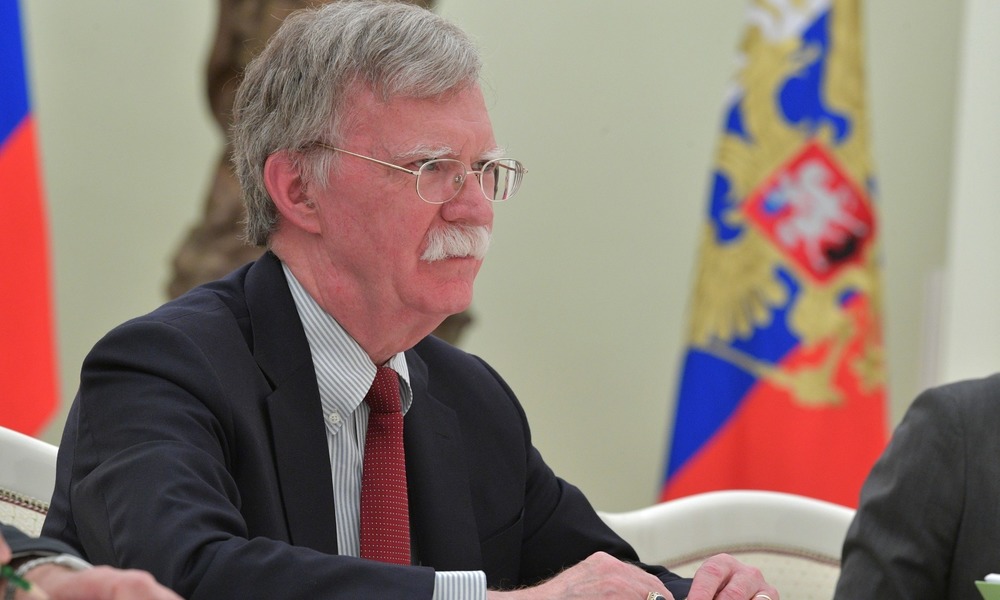RUSSIA MONITOR
Date: 25 August 2018
More Tensions Between Moscow and Washington
Does anyone still remember the Helsinki summit? On August 23 in Geneva, Russia and the United States have participated in the first top-level meeting since the July summit in the Finnish capital. Following the talks held between U.S. national security adviser John Bolton and his Russian counterpart Nikolai Patrushev, it may be said that the Helsinki summit has not changed anything in U.S.-Russian bilateral relations. Interestingly, they have significantly deteriorated in recent weeks. It seems that Moscow has already understood that the Helsinki summit had considered only apparent victory of the Putin’s regime. Such state of affairs may explain Russia’s harsh rhetorics against the United States; at the same time, the Kremlin has been preparing for a potential economic war with America. And, on the other hand, both the Trump administration and the U.S. Congress have recently undertaken further anti-Russian steps while Donald Trump is yet expected to prove that he has never acted as a Russian agent.

Another stage of the crisis in U.S.-Russian relations has been marked by new American restrictions against Russia imposed after several incidents related to the use of chemical weapons in the United Kingdom (the attempt murder of the Skripal family). In the following months, further sanctions will enter into force. Prior to new limitations to be introduced, Russia has started purchasing gold; in July 2018, the Russian authorities decided to buy 26 tons of the bullion. It has also sold 85 percent of U.S. bonds as well as it got rid of dollars. In addition, Russian and American politicians have seemingly introduced pretty tough rhetorics. On August 23, both sides put forwards several declarations, which may speak to further conflict escalation.
U.S. national security adviser John Bolton met in Geneva with Secretary of the Security Council of Russia Nikolai Patrushev. Following the conversation, Bolton stated that he had warned Russia’s envoy against meddling into this year’s elections in the United States. Thus, it appears that the five-hour meeting made both parties sure about their current standpoint as well as such issues as meddling in the U.S. presidential election or Iran’s military presence in Syria. On August 23, Russia’s Foreign Minister, in a phone call with the U.S. Secretary of State, assessed that the U.S. “destructive” approach to its relations with Russia had a negative impact on cooperation between the two countries. Moreover, Lavrov demanded that the United States end the prosecution of Mariia Butina, a Russian citizen who is being held on charges of acting as an agent for the Kremlin.
U.S. Special Representative for Ukraine Negotiations Kurt Volker is clearly acting for the benefit of Ukraine, Russian Deputy Foreign Minister Sergey Ryabkov said in a press interview published on August 23. Two days earlier, Sergei Lavrov had announced that a new meeting between Volker and Russian presidential aide Vladislav Surkov would take place after a long break; both officials have recently met in January 2018. Prior to the meeting, the Russians are using their best efforts to discredit the American diplomat. Meanwhile, Washington has strongly sided with Kiev, as evidenced by a statement by President Donald Trump, issued on the occasion of the 27th anniversary of the Independence of Ukraine (August 24). The U.S. President has assured that his state would continue to support the country that “has bravely opposed the Russian military aggression over past four years.” It was no coincidence that President Trump mentioned in his statement that Ukraine had been defending its “territorial integrity within internationally recognised borders.”
All texts published by the Warsaw Institute Foundation may be disseminated on the condition that their origin is credited. Images may not be used without permission.














